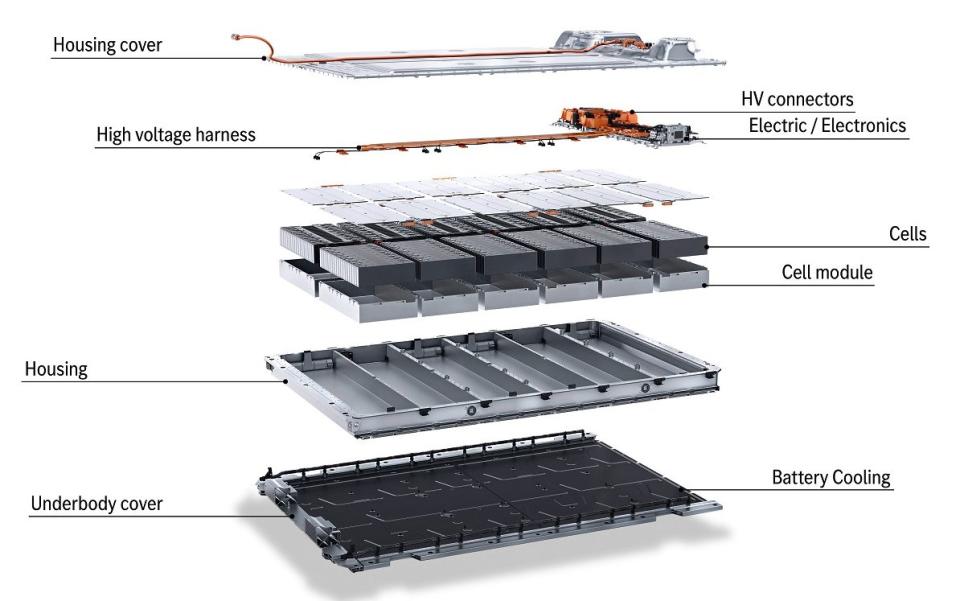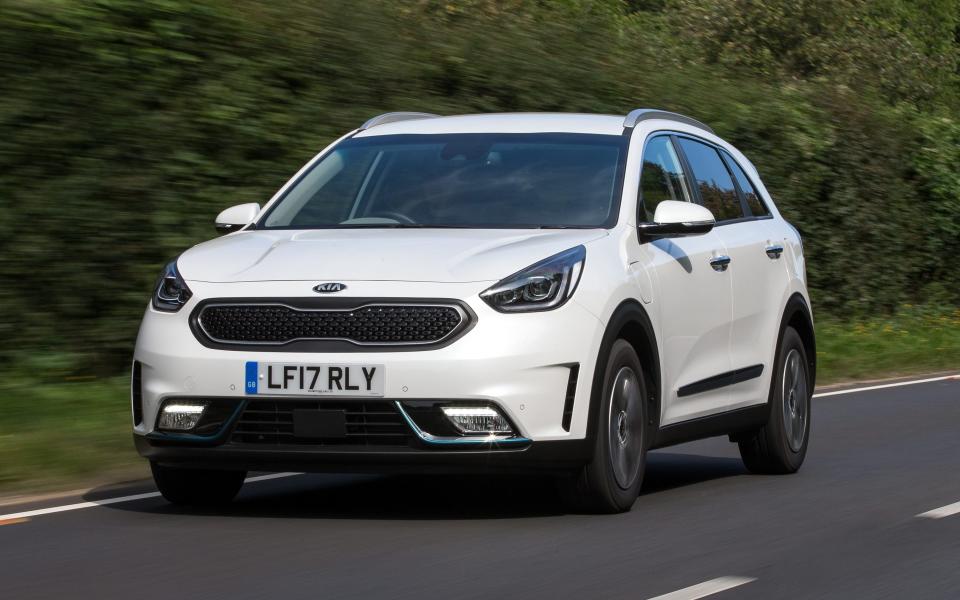Honest John: is a German car better than a Japanese or Korean one?

If your car has developed a fault, or for consumer advice, turn to Honest John by emailing honestadvice@telegraph.co.uk
Blinkered view
My wife and I have a three-year-old Volkswagen Golf GTI, which is brilliant, but we now feel the higher driving position of an SUV would be better. We have had six VWs and all have been 100 per cent reliable. Our criteria are that it must be automatic and petrol, certainly not electric, nor made in Japan or Korea. We would want all the toys our Golf has: reversing camera, keyless entry, blind spot and lane control, cross traffic alert, sat-nav and folding mirrors. We have looked at a VW T-Roc, Audi Q2 and BMW X1. Which of these do you recommend? DG
I recommend that you stop dismissing Japanese or South Korean cars, because most of them come with much longer warranties than those offered by German manufacturers. And while you might have enjoyed good reliability from your VWs, many readers have been less fortunate – my postbag is proof of this. That said, the VW T-Cross is a nice, classy small SUV. I’d also look at a Peugeot 2008 and a Citroën C3 Aircross, both of which have more intuitive tech than the German cars and, these days, tend to be more reliable. You might also like the Renault Captur, now with a five-year warranty. Finally, I would urge you to consider the Honda HR-V (built in Mexico) and Toyota C-HR (built in Turkey).
Is British best?
Following our departure from the EU, there is a surge to buy British-made cars (as far as they can be called British) at the expense of German and French vehicles. I drive a 2018 Seat Ateca SE Technology 4Drive 2.0 TDI and find it excellent. However, I would like to replace it with a British-assembled car and the only one that rates against the Ateca for performance, spec and style is the Range Rover Evoque. Unfortunately, this has poor reliability ratings. What would you suggest? JB
The answer is not to limit your options in this manner as you are denying yourself some excellent cars. The car industry is truly global; not even German cars are all made in Germany, for instance. In your case, instead of an Evoque you probably have to think Nissan Qashqai or the much smaller Juke, but neither has been brilliantly reliable. Toyota Corolla hybrids are built at Burnaston in Derbyshire, but the Ateca-rivalling C-HR is assembled in Turkey. Honda CR-Vs are no longer built at Swindon; HR-Vs come from Mexico. Vauxhall Astra hatchbacks are still built at Ellesmere Port on Merseyside. No Fords are assembled in the UK. The Mini and Mini Clubman are built in Oxford, but the SUV-like Countryman isn’t. The Jaguar E-Pace is assembled in Austria. Many fine South Korean cars are built in the EU, too, in Slovakia and the Czech Republic.
Case dismissed
I have been pondering whether to join the various class actions that are being launched by UK lawyers over the emissions defeat software in two Mercedes C-class diesels I have purchased since 2015. Both were subject to recalls and software updates. When I bought the first, a C220d AMG Line auto estate, I demanded that the official emissions figures were noted on the invoice, which the dealer and I both signed. Would this information be useful in a legal action and, if so, would a direct action against Mercedes or personal negotiation with the company be the best way forward? PB
Unless you have suffered a demonstrable loss that can be quantified in terms of monetary damages, I don’t see how you can sue. However, if you can prove that the car’s emissions are not as those stated on the receipt, you might have a case against the dealer. If the car has been fixed, now meets the emissions stated on the receipt and has not been devalued by the scandal, you have no case.
Batteries not included

I read about Trevor Jackson’s brilliant invention of an aluminium-based battery that will on one charge enable a car to travel 1,500 miles. But he is deliberately being sidelined by major manufacturers as they would lose out. It seems bloody-minded that they would do this as it will be a world beater and give the UK a world lead in this field. Have you heard about this and what if anything can be done to get him recognised and promoted by our government? PH
Readers can find out more about Trevor Jackson’s Al-air EV battery by reading this article. As the author says, “A long-range, lightweight, cost-efficient, recyclable and ethically sourced battery is, arguably, the Holy Grail of the EV market.”
Eaten mess

The amber engine warning light of my 2016 BMW 320i M Sport came on after it had been parked for a week. BMW Service advised that the wiring loom showed signs of attack by mice and provided evidential photos. They also presented a large bill. I gather that mice are attracted to the soya oil used in the plastic wiring insulation. What is the best, most practical way of getting rid of mice – and keeping them away? MB
They could have set up home in the ventilation trunking of your car. We had a recent discussion in the column about ultrasonic rodent repellers, better powered by their own batteries than by the car’s 12v system. An internet search will reveal a multitude of options. I take the view that if you feed small rodents with the food they want, they won’t attack your wiring.
Manual labour
Due to Covid restrictions I have not been driving very far in my Jaguar E-Pace 2.0 petrol. A dashboard warning tells me that the battery is low and I should start the engine. I would like to use a trickle charger to keep the battery topped up, but the manual says it should be disconnected and removed by an authorised dealer for charging, and that consequently some systems will need to be reset. Can I not charge the battery without removing it while I keep the car in my garage? AW
It seems to be JLR policy to issue that warning. I disagree with it, but had better not contradict it. Basically, to recharge a low battery, the best thing you can do is take the car for a run of 50-100 miles with no stops in daylight. I think JLR issues the warning to stop owners using the wrong type of charger and spiking their electrical system. If the correct battery-conditioning smart charger is used, there should be no problem. But if a problem did occur, JLR could say they warned you and that you brought it on yourself.
Seal cull
I have owned a 2017 VW Golf SV 1.4 TSI DSG from new and asked the VW dealer when the gearbox oil/fluid/filter would be changed, as we have now done 45,000 kilometres. I was informed that the gearbox was sealed for life and the oils/fluids did not need to be changed. Is this correct? CBC
It will have the DQ200 seven-speed dry-clutch DSG, which is only sealed for life in theory. It was originally designed to be filled with synthetic oil that might have lasted 10 years or more. But that oil became conductive at high temperatures, confusing the Mechatronics control system and leading to loss of drive. So in 2013 an in-service action replaced the synthetic oil with mineral oil and new DQ200s built since were filled with mineral oil in production. This mineral oil can degrade and need replacing after four-five years or 60,000km. So, while you’re not quite there yet, it will need doing soon. It has a drain plug, but the fresh fluid has to be syringed in from the top.
Taste of good height

I would like to buy a used hybrid with a reasonably high driving position, for up to £12,000. What should I consider? RR
For that kind of money you’ll be looking at self-charging hybrids, as a plug-in hybrid (PHEV) will cost more. A Kia Niro is probably best, or an older Toyota RAV4.
Bare necessities
In March 2016 my wife bought a Mini along with a service contract, which was supposed to cover all maintenance for five years/50,000 miles. She hasn’t been doing that mileage, therefore servicing is limited to once every two years, which does not seem adequate. It seems hardly fair that she doesn’t get the benefit that other, higher-mileage drivers receive under the same contract. What do you think? FJ
This is why I don’t recommend BMW Mini contracts of this type. They seem relatively cheap, but they provide the barest minimum servicing and in my view this has been responsible for numerous engine failures. My advice is to pay for an oil and filter change every year and a brake fluid change every two years, even if you meet resistance from the dealer.
1 step beyond
My wife has a 2017 BMW 1-series, which was serviced in 2019 at 4,700 miles. It has now reached 8,100 miles. The brake fluid was checked in 2020. BMW now says that a full service is required, costing £465. Surely all that needs to be done is a standard oil service? Replacement of things such as spark plugs should not be necessary. What are your views on servicing when mileages are low, due in part to lockdown? AW
Since the car is now out of warranty you could choose to go independent, where lower overheads bring down the cost of the same level of service (though you would lose any goodwill from BMW). If you use the BMW dealer and refuse the full service, then you might also lose any goodwill for faults that develop outside the warranty because you did not pay for the correct preventative maintenance. Low mileages do not necessarily mean you can cut corners with servicing.
Spare us the cutter
My Lexus CT has 17-inch wheels with low-profile tyres. Having dropped down a pothole it looks as though one tyre is ruined, with sidewall damage. Would fitting XL spec all-weather 17-inch tyres help prevent such a thing happening in future? Or should I bite the bullet and get Lexus to fit 16-inch wheels? AF
For higher-profile all-weather tyres to work, you need to fit smaller wheels so the rolling circumference is the same (in this case 16-inch wheels with 205/55 R16 rubber). You will have to get the approval of your insurer to make this modification.
Read Honest John’s latest column on telegraph.co.uk every Friday from 10am
For tips and advice, visit our Advice section, or sign up to our newsletter here
To talk all things motoring with the Telegraph Cars team join the Telegraph Motoring Club Facebook group here

